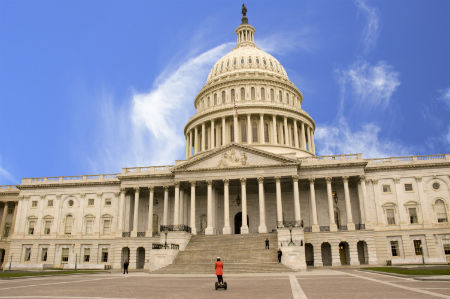Politics and Christians in ‘The Age of Rage’
By Neil Earle
 Beware the trap of negativism and anger.
Beware the trap of negativism and anger.So what are we to do?
Actually I used this title back in 2010 under Presdient Obama when a candidate had to proclaim “she was not a witch” and the word “civility” began to enter the language.
Can Scripture offer any help?
Why, of course. How about 1 Peter 2:17 for starters – “Show proper respect to everyone.” At university in the 1960s I did not participate in the debating team because I soon learned that it wasn’t facts we were suppsoed to dig out but defending your position. If you uncovered facts against your opponent hide, distort or construct arguments against them. Too many politicians learn this tactic in college and…the beat goes on.
“Consider others better than yourself” (Philippians 2:3) – this basic text led one of my pastor friends to remember what he liked about both political parties. Historically, Democrats have had a strong bias towards social justice issues, supporting the underdog and international coalition-building (NATO, the Marshall Plan, etc.). Republicans traditionally plumb for the family unit, fiscal restraint, a strong military.
Taking these values as starting points is a step along the road to being “all things to all men.” (1 Corinthians 9:22). That was St. Paul and no one ever accused him of being a milquetoast or having no strong opinions.
Usually, Christians fall into one of five positions when politics comes around.
 Christians have had a big influence on public affairs from prison reform to volunteering in school and keeping food banks and urban missions going.
Christians have had a big influence on public affairs from prison reform to volunteering in school and keeping food banks and urban missions going.- Rejectionism. “Why vote, they’re all crooks!” A bit of a sweeping generalization (which trait plays well on today’s talk shows, incidentally). Everyone knows there are abuses at all levels and among all parties but once again the clear, calm voice of the Son of God cuts through the morass: “Anyone who says to his brother, You worthless person, is answerable to the Sanhedrin. But anyone who says, You fool, is in danger of hell fire” (Matthew 5:22). This is good advice. Followed, it would really change things. It’s basic self-restraint.
- Irrelevance. “It doesn’t matter. Christ is returning in a few short years and will change everything.” My church has had a good dose of that in its DNA. Thankfully we’ve seen the error of our ways. If your neighbors ask for your help with a Referendum that would prevent children near a mine to prevent getting asthma, they might have a right to be offended if you dodge the issue. How is “hands off” behavior loving your neighbor? Being salt and light? This links up with number five, below.
- Slavish Submission. “Do what those over you say because Romans 13 says they are appointed by God.” That’s right, they are. But everything Hitler did was “legal” in the sense of being authorized by the state. So were the pro-slavery laws. We have to walk wisely. Jesus asserted his fundamental human rights when he was arrested (Luke 22:52-53). Peter clearly said, “We must obey God rather than men.” Christians have to pray for balance on these issues. It’s not easy.
- The Pollyana Attitude. “I pray for kings and rulers and just leave it at that.” There’s some truth here as there is in Position Number 3. 1 Timothy 2 commands us to pray first for those over us “that we may lead a quiet and peaceful life.” We Christians fall down here tremendously. We need to pray for our leaders and the burdens they bear privately and publically much much more than we do. But…you’ll never hear that injunction on any talk show! Christians are to remember the advice of Jeremiah 29:7 to seek the peace of their city. Being salt and light involves intelligent action. And that leads to….
- Intelligent Activism. As opposed to “unintelligent activism.” Christians can easily see themselves as victims in the political process but the truth is that they have had a big influence on public affairs from prison reform to volunteering in school and keeping food banks and urban missions going. Passivity is no answer.
 To say all politicians are crooks is a sweeping generalization.
To say all politicians are crooks is a sweeping generalization.Hold the High Ground
I’m a pastor so there has to be three points right? Here we go.
First, beware the trap of negativism. There is altogether too much hatred, fear, rhetoric and suspicion bombarding us from talks shows, political platforms and pulpits. Ten years ago when I made the first draft of this article you could twirl your radio dial and hear that Vice President Cheney planned 9/11. Turn it again and you’d learn that President Obama was a secret Muslim terrorist.
Whew. How did we get here? But we control the remote. We have choices to make. It takes courage to buck the trend if you’re a liberal in a conservative workplace or vice versa.
One of the Biblical watchwords that slowly began to transform this world was Peter’s in Acts 10:34, “I now realize how true it is that God does not show favoritism but accepts men from every nation who fear him and do what is right.” Or as it says in the New King James: “God has shown me that I must not call any man impure or unclean (verse 28).” The devout Jew Peter said that after baptizing Cornelius who was a Roman, a Gentile and a member of the imperial occupying force. God was stretching Peter. Today’s political controversies will stretch all of us.
Secondly, be thankful for and exercise your political freedoms if you are fortunate enough to have them. Jesus used his as did Paul on more than one occasion (Acts 16:35). Voting is still a privilege in most countries. Not to vote is to make a decision that can be consequential – Christians should know that. Issues are rarely ever totally black and white and that’s why it needs to be a prayerful decision. But be of good cheer. God is more willing to give us wisdom than we are even willing to ask (James 1:5).
Third, beware of Christian fakery. Not everyone who says “Lord, Lord” is to be believed, especially at election time (Luke 6:46). In light of Proverbs 31:9, which tells leaders and rulers to “speak out, judge righteously, defend the rights of the poor and needy,” pastor-author Glenn Moyer outlined a few principles to look for in candidates who may deserve a second look. These include a consistent track record, a bias towards peace and diplomacy, and good stewardship in general. Not all would agree with Moyer’s list but at least they encourage “out of the box” thinking.
In the North Atlantic world and elsewhere, Christian voters and even Christian candidates are free in the Lord, free to study the issues and think for themselves, free to break out of the boxes society likes to place us in, the kind you often see on a ballot sheet. Remember, God has promised us his wisdom and his promises are always kept.